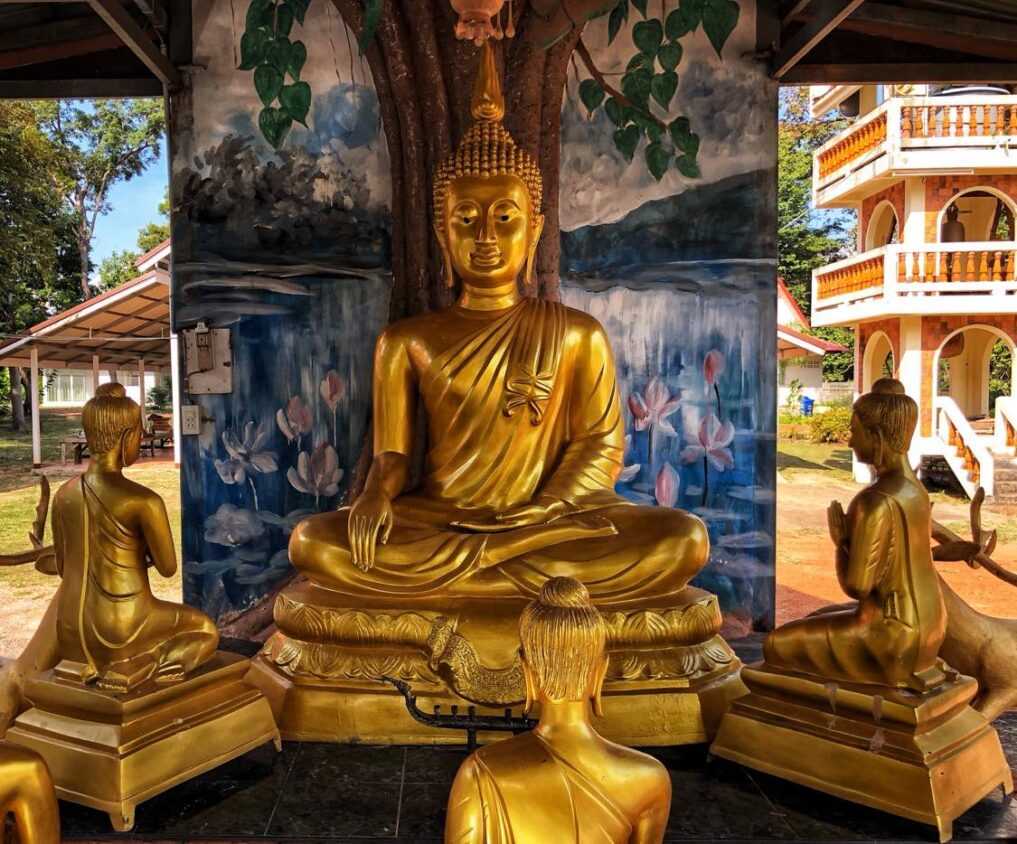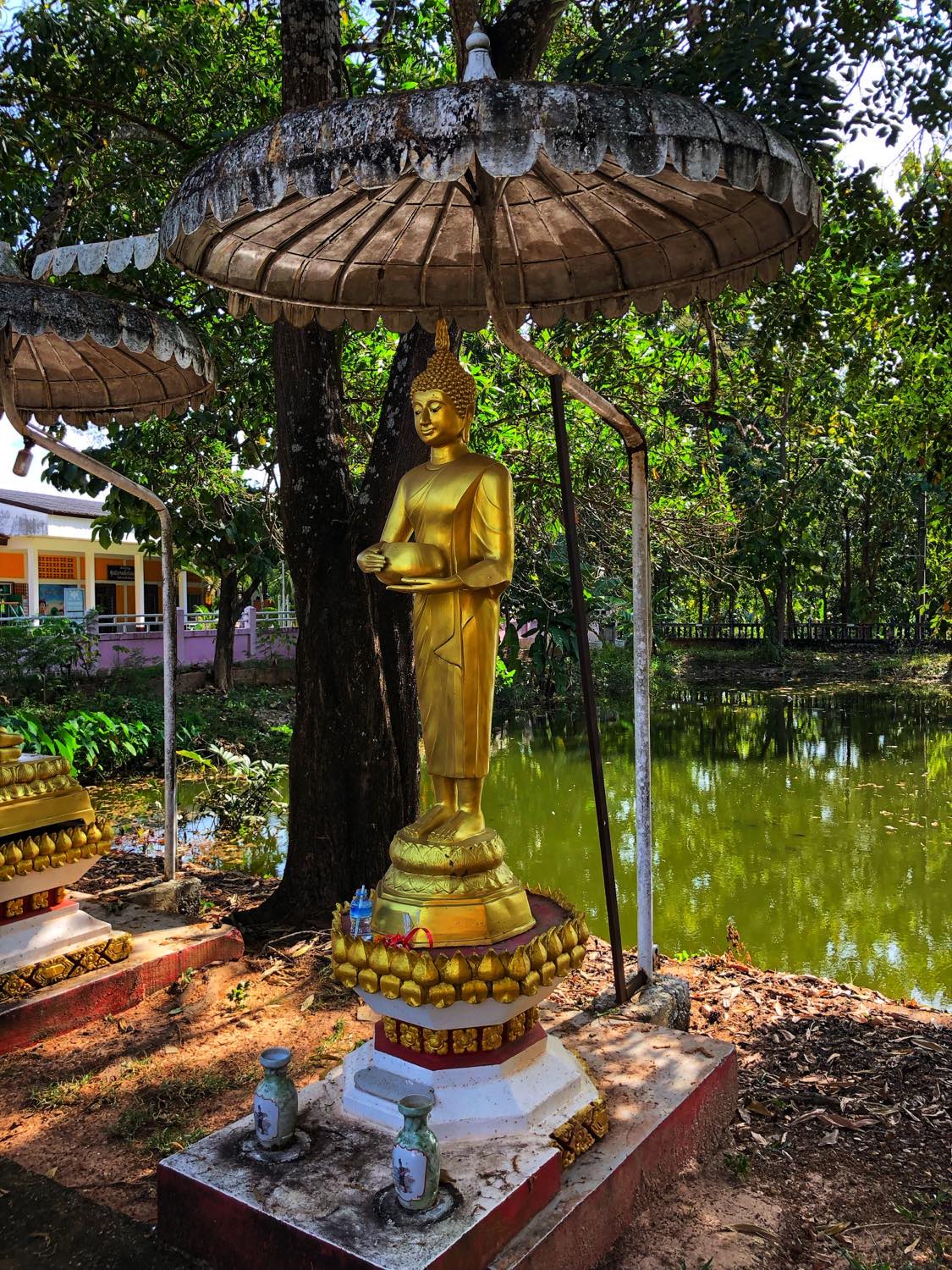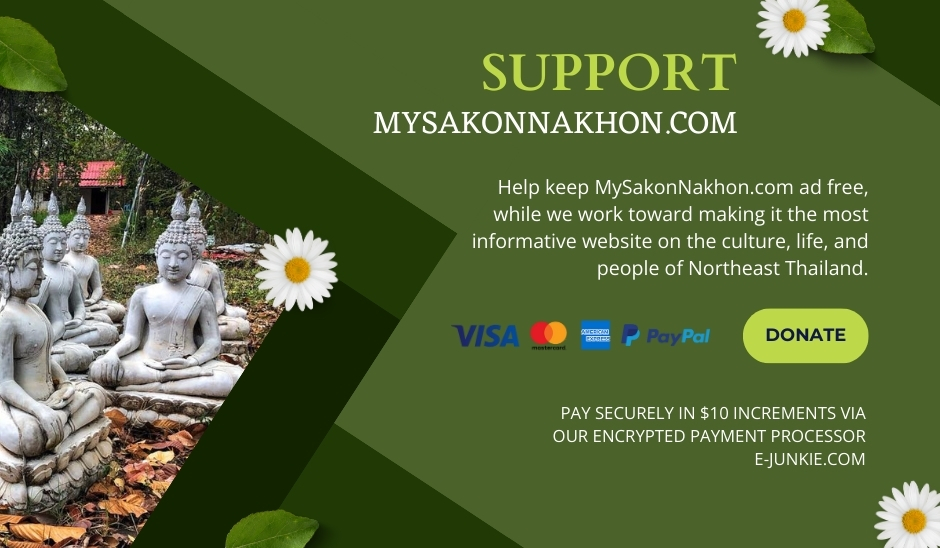
How to Make Merit in Thailand

In Thailand, “making merit” is an important activity for Buddhists. In the Thai language, it’s referred to as “tham boon” (ทำบุญ), which means “do good deeds”. The word “boon” is derived from Pali word “punya,” which means a tool to purify the mind.
Buddhists thus view merit as a tool for purifying the heart of “defilements”. Thais refer to these defilements as “geelet” (กิเลส), which signifies the three passions that make the heart sad: greed, anger, and delusion.
Making merit is said to reduce these passions, helping us let go of the greed, selfishness, and narrow-mindedness which causes various kinds of suffering. It helps to free the mind and raise the spirit to a higher level, resulting in contentment, peace, and lasting happiness. It is not, as some misguided critics claim, a vain attempt by Thais to buy entrance into Nirvana, Heaven, a better Next Life, etc.
When foreign commentators discuss how Thai people “make merit,” they usually highlight the giving of alms at Thai temples, the making of donations to help the poor, or helping those suffering from a tragedy such as a flood. However, there are many other ways to make merit in Thailand.
The Office of the National Culture Commission (ONCC) identifies 10 methods for making merit. Recognizing that not everyone has the opportunity or resources to “give alms” (monetarily), and that Buddhism does not require such alms, the list includes methods of merit-making that all Thais can do (at any time), regardless of their economic situation.
Foreigners of course also can make merit in Thailand (regardless of their faith) by following these wise practices for uplifting the heart and mind.

10 Ways to Make Merit in Thailand
1. Give alms, or as it is referred to in Thailand, “Thanmai” (ทานมัย). This means giving or sharing generously of what you have — whether it’s money, food, knowledge, or anything else. No matter who you give to (poor or not), it all is considered merit, because the giving of alms reduces selfishness, stinginess, and narrowness of mind. It lessens our attachment to material things, and is beneficial to the recipient and Thai society as a whole.
2. Maintain the precepts or “Silamai” (สีลมัย). The precepts refer to those 5 Buddhist commandments of not harming others; not engaging in sexual misconduct (e.g. having affairs); not getting drunk or high; not stealing; and not lying to others.
3. Develop “Bhavanamai” (ภาวนามัย), which means spiritual contemplation with an aim towards developing the mind and attaining wisdom. By calming the mind with meditation, or with the help of Buddhist chanting, we begin to see what is truly of value and what can be cast aside, as we rid ourselves of concerns over the trivial and impermanent.
4. Practice humility or “Apajayanamai” (อปจายนมัย). Behaving in a humble manner is the equivalent of making merit. Whether it takes the form of expressing humility before an elder, or responding with kindness and understanding when another person holds thoughts or beliefs different from our own, humility reduces the ego’s grasp on our identity and contributes to social harmony and peace.
5. Practice “Vaiyavajamai” (ไวยาวัจจมัย), which means giving assistance to those in our family, community, and immediate surroundings, such as helping our parents with the household chores; assisting a neighbor whose buffaloes have broken loose; helping a stranger change a tire; running errands for a sick relative; giving encouragement to a struggling friend; or organizing a clean up of the litter around a park or reservoir. All of these acts are a way of making merit in Thailand.
6. Invite others to join your merit making. This is called “Patti Thanmai” (ปัตติทานมัย) in Thai. No matter what kind of merit is being made, give others an opportunity to make merit with you. This helps to establish friendly personal bonds, a shared sense of community, and demonstrates your concern for the other person’s spiritual and emotional well-being. It signifies your open, welcoming heart.
7. Be pleased with the merit-making of others. This is known as “Pattanu Mothanamai” (ปัตตานุโมทนามัย) in Thailand. When someone goes to make merit, we should feel happy, and never feel envy or be suspicious of the other person’s good deeds (merit). We should be glad that they have seized an opportunity to make merit and cleanse their heart and mind. Don’t second-guess their sincerity, else you encourage others to doubt yours.
8. Listen to “Dharma Suanmai” (ธรรมสวนมัย). These are Buddhist sermons, many of which involve parables or true stories with a moral to teach. These Thai stories do not always teach religious principles. Some impart simple wisdom for living a good life, and avoiding the snares that cause people suffering and despair.
9. Teach the Dharma to others. That is, share the Buddha’s teaching and wisdom. This doesn’t mean to proselytize or be the Buddhist equivalent of a Christian Bible thumper in Thailand. Rather it means looking for those opportunities when sharing Buddhist insight might be helpful to a friend who is struggling with a personal problem, or needlessly anxious about a situation, or depressed about some unfortunate event in their life; etc.
10. Be careful in forming your opinions. Among Thai Buddhists, this is called “Tittuchukam” (ทิฏฐุชุกรรม). Always take great care in forming any opinion, and never hold onto it too tightly, as it may need to be fixed, expanded, or improved upon later. Don’t fall into the trap of making a firmly held opinion part of your identity. That will only make it harder to let go of the opinion if proved wrong (which very often happens). When assessing the rightness of your opinions, always view them under the light of the Dharma.
As you can see, anyone can make merit in Thailand by following the above suggestions. It does not require financial resources or a visit to a Thai temple. It depends only on a desire to cleanse one’s heart and mind, so as to live a happier, more abundant life.
- The Hidden Dharma of Thai Language & Culture - May 11, 2024
- The Royal Ploughing Ceremony in Thailand – A History - May 8, 2024
- Dying Well the Buddhist Way in Thailand - May 7, 2024




